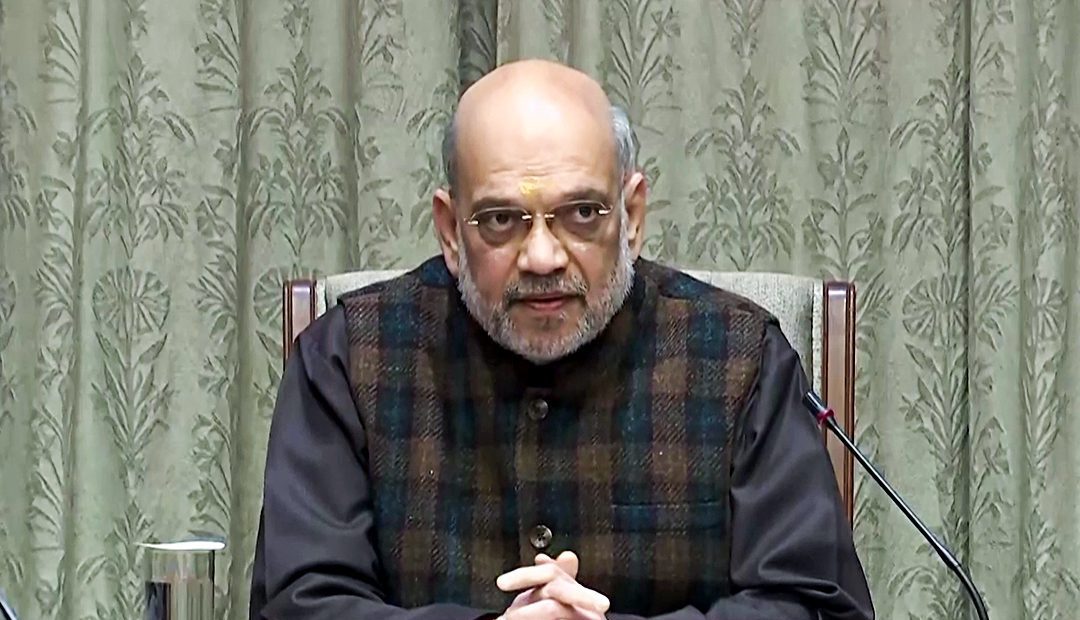Union Home Minister and Minister of Cooperation Amit Shah chaired a high-level review meeting in the capital to assess the progress of three key cooperative institutions—National Cooperative Exports Limited (NCEL), National Cooperative Organics Limited (NCOL), and Bharatiya Beej Sahkari Samiti Limited (BBSSL).
These organizations, formed in 2023 under the leadership of Prime Minister Narendra Modi, are working as umbrella bodies under a “Whole of Government” approach to boost cooperative exports, organic farming, and quality seed development.
During the meeting, which was attended by senior officials from the Ministry of Cooperation and the managing directors of the three institutions, Shah emphasized the government’s commitment to realizing the vision of “Prosperity through Cooperation” by empowering cooperatives with strategic support and institutional reforms.
Shah directed NCEL to diversify its export portfolio by targeting new markets for sugar from cooperative mills, Tripura’s aromatic rice, organic cotton, and coarse grains. He also proposed partnerships with large companies for the export of fresh vegetables to Gulf countries and premium varieties of potatoes.
Setting an ambitious export target of Rs 2 lakh crore, the Minister instructed NCEL to identify three new products currently not exported from India and to route all cooperative exports through NCEL to generate significant returns—estimated at Rs 20,000–30,000 crore—for cooperative members. He also suggested opening offices in Africa and Myanmar to facilitate pulse imports and developing a digital platform for cooperatives to access global market data.
In FY 2024–25, NCEL achieved a turnover of Rs 4,283 crore and a net profit of Rs 122 crore, with exports reaching 28 countries. Over 10,000 cooperative institutions have joined as members, and 61 MoUs have been signed with importers from Senegal, Indonesia, and Nepal.
‘Bharat Organics’ and Metro Retail
The Minister praised NCOL for its partnerships with major brands like Amul and BigBasket and announced that ‘Bharat Organics’ products would soon be available in Reliance retail stores. With 22 organic products already launched in the Delhi-NCR region, the brand is set to expand to other major cities.
Shah set a turnover target of over Rs 300 crore for NCOL in FY 2025–26 and called for the formation of state-level organic farmer groups. In its zero year of operations, NCOL has enrolled over 7,000 cooperatives and procured more than 1,200 metric tonnes from 2,000 farmers, generating a turnover of Rs 10.26 crore.
A notable innovation is NCOL’s QR code-linked transparency model, which allows customers to access pesticide residue test reports—an industry first focused on authenticity and sustainability.
BBSSL
Highlighting the strategic role of BBSSL in enhancing India’s agricultural productivity, Shah stressed the need to develop high-yielding, water-efficient crop varieties. He cited the newly inaugurated BBSSL Centre in Kalol, Gujarat, which is developing improved strains of pigeon pea, black gram, and maize.
He also urged the development of sugarcane varieties with higher sugar content and lower water requirements, and emphasized the establishment of tissue culture labs to support banana cultivation in India’s top-producing states. The Minister called for promoting fodder crops like Lachka through networks such as NDDB and Amul and stressed the need to boost seed production for processing varieties like French fry-grade potatoes.
To support this, the Ministry of Cooperation will coordinate with the Ministry of Agriculture to ensure the timely supply of breeder seeds.
The Minister commended the progress made by all three organizations and reaffirmed the government’s commitment to advancing India’s cooperative movement through innovation, institutional backing, and farmer-centric reforms.














